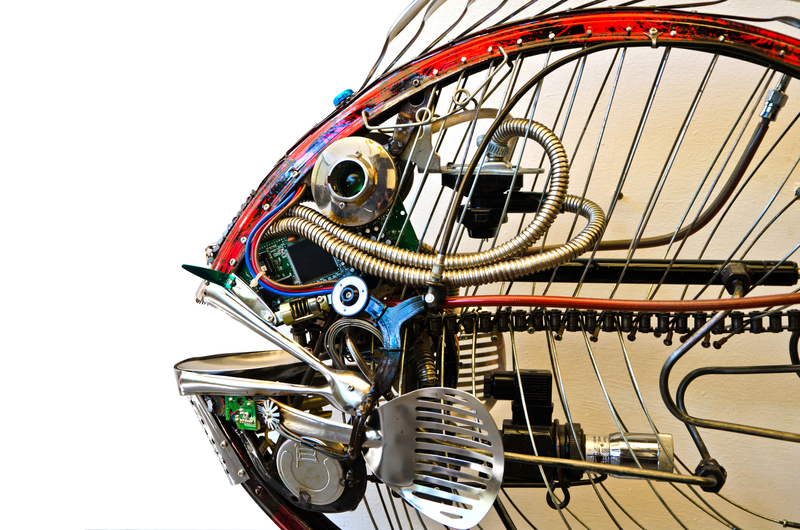Keep Yourself Safe: Plastic Products to Avoid
Posted on 02/05/2024
Plastic is everywhere in our modern world - from packaging to household items, and even our personal care products. While they may seem convenient and practical, the truth is that most plastics are harmful to our health and the environment. Many plastic products contain toxic chemicals that can leach into our food, water, and air, causing long-term health problems. In this article, we will discuss the plastic products you should avoid to keep yourself safe.
Understanding Plastic Types
Not all plastic is created equal. It's important to understand the different types of plastic and their potential risks. The most common types of plastic are labeled with a number inside a recycling triangle symbol:
- #1 Polyethylene Terephthalate (PET or PETE): used for water bottles, soda bottles, and food containers.
- #2 High-Density Polyethylene (HDPE): used for milk jugs, detergent bottles, and grocery bags.
- #3 Polyvinyl Chloride (PVC): used for pipes, flooring, shower curtains, and cling wrap.
- #4 Low-Density Polyethylene (LDPE): used for plastic wraps, sandwich bags, and grocery bags.
- #5 Polypropylene (PP): used for yogurt cups, syrup bottles, and ketchup bottles.
- #6 Polystyrene (PS): used for foam packaging and disposable cups.
- #7 Other: includes polycarbonate (PC) which is used for baby bottles and some reusable water bottles.

Avoid These Plastic Products
Based on the type of plastic they are made of, here are some common plastic products that you should avoid:
1. Water Bottles: Most single-use water bottles are made from PET plastic (#1), which can leach harmful chemicals such as bisphenol A (BPA) into your drinking water. Instead, opt for reusable stainless steel or glass water bottles.
2. Plastic Food Containers: Many food containers are made from #5 plastic which can release toxic chemicals when heated. It's best to store your food in glass or stainless steel containers instead.
3. Plastic Straws: Often made from PP (#5), plastic straws can contain BPA and phthalates which have been linked to hormone disruption and reproductive issues. Use reusable metal or bamboo straws instead.
4. Plastic Bags: Most plastic bags are made from LDPE (#4) which can release harmful chemicals into the environment when they break down. Bring your own reusable cloth or paper bags when grocery shopping.
5. Disposable Cutlery: Disposable utensils, plates, and cups are often made from PS (#6), which can leach styrene, a possible carcinogen, into hot liquids and foods. Opt for reusable versions made from materials like bamboo or stainless steel.
The Pros and Cons of Using Plastic
While it's clear that there are many negative effects of using plastic products, there are also some benefits to consider:
Pros:
- Convenient and lightweight.
- Cheap to produce.
- Durable and can last a long time.
- Recyclable (although only about 9% of plastic is actually recycled).
Cons:
- Harmful to human health due to toxic chemicals.
- Pollutes the environment.
- Non-biodegradable, taking hundreds of years to decompose.
- Can harm wildlife if ingested.
Tips for Reducing Your Plastic Use
Here are some simple tips for reducing your plastic consumption and keeping yourself safe:
1. Swap out single-use plastics with reusable alternatives wherever possible.
2. Buy products in bulk to reduce packaging waste.
3. Use natural cleaning and personal care products packaged in recyclable materials.
4. Avoid processed foods that come in plastic packaging.
5. Recycle properly - research the recycling guidelines in your area to ensure you are properly disposing of plastic waste.

The Takeaway
Plastic is a ubiquitous material in our society, but it comes with many risks to our health and the environment. By avoiding certain plastic products and making small changes in our daily habits, we can help reduce our personal impact on plastic pollution. Additionally, supporting companies that use sustainable, non-toxic packaging can help drive change towards a more eco-friendly future.
Conclusion
In conclusion, keeping yourself safe involves being aware of the harmful effects of plastic products and making conscious choices to avoid them. By reducing our consumption of single-use plastics and opting for reusable or sustainable alternatives, we can protect our health and the planet for future generations. Remember to always check the plastic type before purchasing any products and consider how they may affect your well-being in the long run. Let's all do our part in reducing plastic usage and creating a healthier world for ourselves and others.
Latest Posts
Enhance Business Efficiency with Waste Collection

